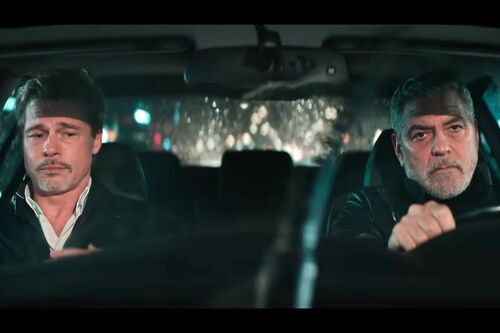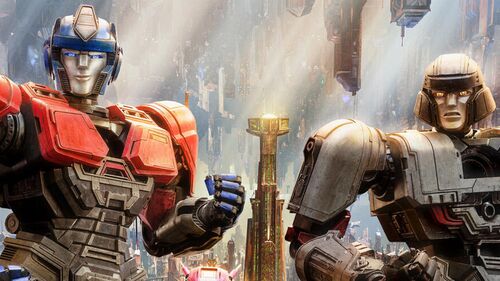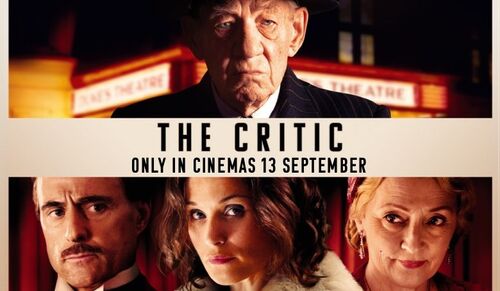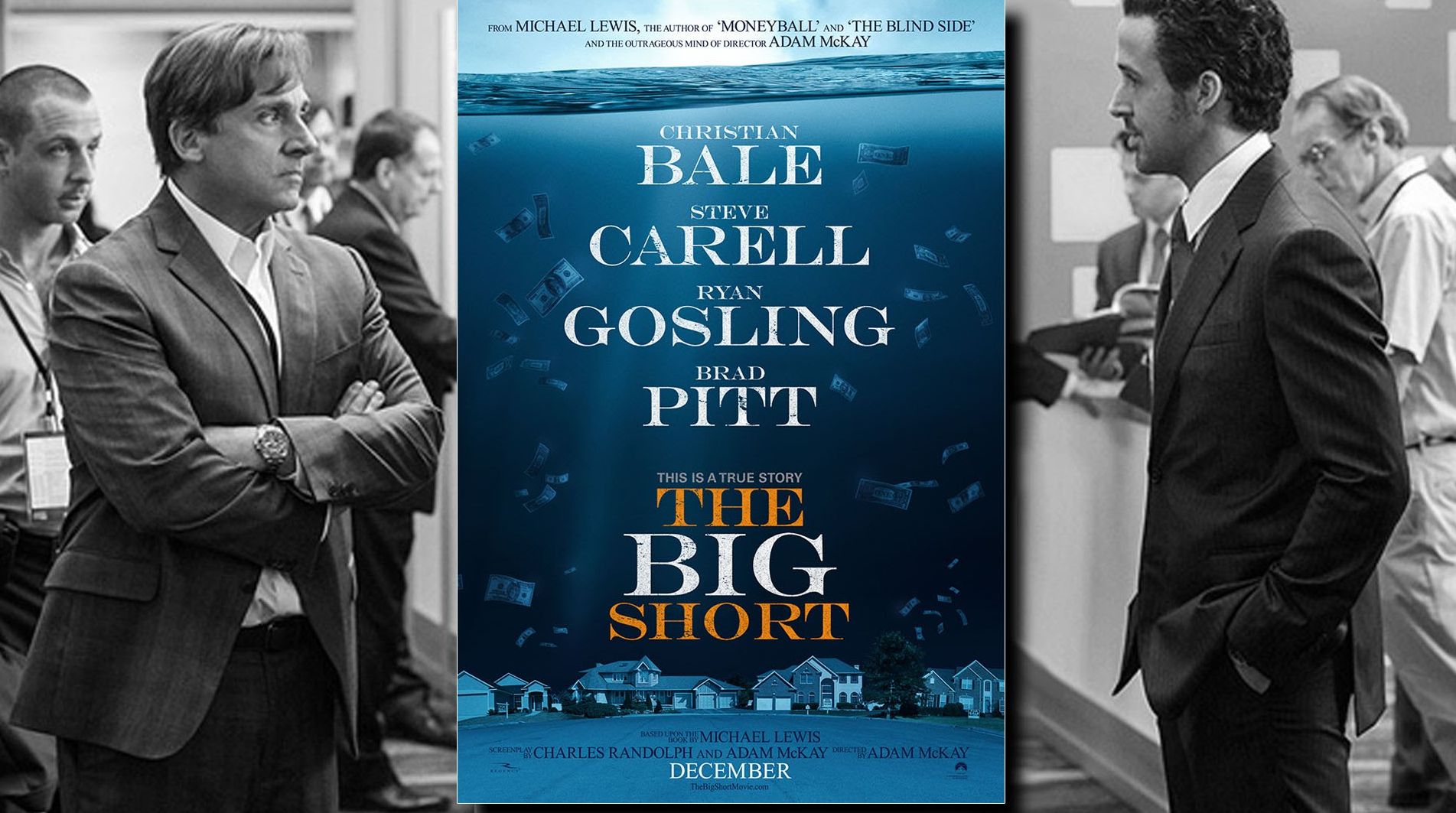
"The Big Short" Review
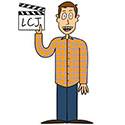 This all-star adaption of the best-seller from the author of "Moneyball" may be too "inside baseball" for most moviegoers.
This all-star adaption of the best-seller from the author of "Moneyball" may be too "inside baseball" for most moviegoers.
When thinking about "The Big Short" during the drive home after attending a screening, I came to the realization that I didn't hate this movie, but I also had a difficult time coming-up with things I truly liked about it.
Adapted from "Moneyball" author Michael Lewis' 2010 best-seller, "The Big Short: Inside the Doomsday Machine", this all-star ensemble dramedy centers around the real-life events leading-up to the financial crisis and Wall Street collapse of 2008. Steve Carell, Christian Bale and Ryan Gosling all play finance gurus who, beginning in 2005, begin to figure-out that the US housing market is in deep trouble because of too many bad mortgages being sold to homeowners and taken-on by banks. They and their small teams decide to bet against housing and the big banks ("shorting" them, in financial terms) to the tune of millions/billions of dollars. Everyone in the financial community thinks they're fools, and brokers at the banks are more than happy to take their business. But, of course, we all know that everything these guys are predicting will happen really does happen. And this is one of the challenges "The Big Short" presents.
Gosling's Jared Vennett narrates the film. His character, and the movie as a whole, have an intentional and unmistakable attitude of superiority. Gosling, and other characters, often break the fourth wall, talking directly to the audience, a device that can either help a film, or be seen simply as a gimmick. Director Adam McKay (who's collaborated with partner Will Ferrell on five comedies, including "Anchorman" and "Talladega Nights") tackles his most serious subject matter yet. But, in working with co-writer Charles Randolph ("Love & Other Drugs"), McKay inserts his comedic style and flare, including some unique elements in an effort to make "The Big Short" an entertaining experience about a very dry and depressing subject. This includes using celebrities Margot Robbie ("The Wolf of Wall Street") and Selena Gomez - as themselves - explaining finance terms and practices so the audience can understand them, and maybe better follow the movie. Characters, such as Gosling's Vennett, talking to the audience is one thing, but the real celeb cameos are a mistake - just too gimmicky for a film like this. After awhile I was expecting Ron Burgundy to show-up anchoring the news on the morning of Sept. 15, 2008.
Just as "Moneyball" was with major league baseball, "The Big Short" is pure "inside baseball" when it comes to the Stock Market. There's a portfolio full of character conversations, explaining to each other (and, therefore, to us) what's going on. I've never been a fan of movies that have to blatantly use dialogue to tell the audience what's going on in order to move along the story. If you're not an avid fan of CNBC, the Fox Business Channel or The Wall Street Journal, it's a good bet it's going to be a challenge for you to become invested in "The Big Short". This film will be a tough sell to regular moviegoers, and I'm not sure that those who were directly affected by the stock market collapse and ensuing Recession (i.e. people who lost their homes, jobs, and/or millions of dollars) will want to re-live this nightmare, especially with the light, comedic touches.
Being an outsider of the world of Wall Street, I was able to experience "The Big Short" simply as a movie. Carell (who, once again, packed on some extra weight for a role) gives the best performance as Mark Baum, a bitter and angry broker, grieving from a family loss, who is out to make every cheat pay a price. Bale, as the heavy-metal/rock-music-loving Michael Burry, a one-time doctor now running a successful hedge fund, is also strong. I would've liked to have gotten to know these two characters even more on a personal level, but the large number of supporting players and cycle of stories prevents this from happening. The decision to feature four parallel stories keeps us from becoming deeply emotionally involved within any one of them.
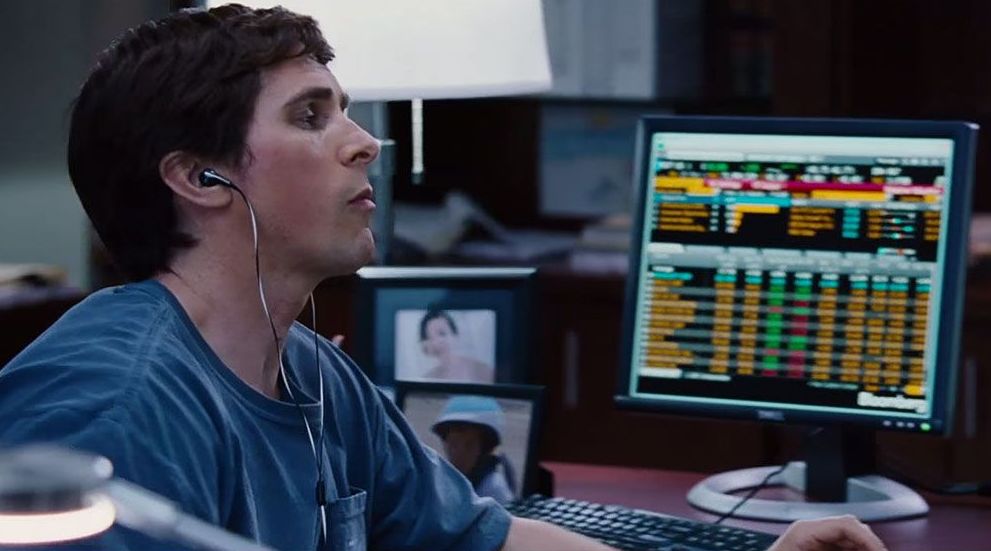
In a male-dominated ensemble (accurately reflecting Wall Street at the time), Marisa Tomei and Melissa Leo have very minor roles. Brad Pitt, who optioned Lewis' book and is a producer, has a small, but pivotal role as former investment tycoon Ben Rickert, who left the game, but is dragged back in by two Wall Street rookies, also looking to make a big hit. Rickert provides the only true moral voice in the film, pointing out that if he and the others are right about the economic collapse, the handful of them might "win" but millions of Americans will "lose". And, of course, that's exactly what happened.
"The Big Short" is interesting, even compelling at times, and it definitely makes you think. But at no point is it ever suspenseful or moving, and the overall arrogant tone constantly pushes you away. I have to say I'm not bullish on its prospects to be embraced by moviegoers and if I had stock in the film, I'd be selling.
